Managing Baby Hiccups: Effective Techniques and Home Remedies
45 hours of research 5 minute read

Baby hiccups, a common phenomenon, often manifest after feeding when the diaphragm contracts, producing the distinctive "hic" sound. While generally harmless and resolving on their own, parents may seek ways to alleviate or prevent these hiccups. In this guide, we explore various techniques and home remedies to help manage baby hiccups, providing insights into the best positions and practical solutions for parents.
Baby Hiccups: What Causes it and is it Normal?
Whether you or your baby is experiencing hiccups, the underlying mechanics are identical. During your baby's breathing process, the diaphragm—a dome-shaped muscle situated between the lungs and the stomach—contracts, allowing air to enter the lungs for inhalation. Subsequently, the diaphragm relaxes, enabling the outward flow of air during exhalation.
However, there are instances when your infant's diaphragm becomes irritated, leading to repetitive spasms over a period. These involuntary contractions prompt the rapid inhalation of a small amount of air into the throat. The swift movement of air in the throat triggers the closure of your baby's vocal cords, resulting in the distinctive "Hic!" sound associated with hiccups.
While the sound of hiccups may seem unpleasant, the reality is generally less severe. Although some hiccups may be more pronounced, most are minor twitches that might elicit laughter from your baby. Certain hiccups may be so subtle that your baby sleeps through them.
It's crucial to note that even in cases of more persistent hiccups, there is no cause for concern, and your baby is not in any danger. Rest assured, baby hiccups are a natural and entirely normal occurrence in the developmental journey.
Baby Hiccups in the Womb
During pregnancy, it's not uncommon for expectant mothers to notice a subtle rhythmic movement that corresponds to their baby's hiccups in the womb. These fetal hiccups are a natural and common occurrence, usually starting in the second trimester.
According to medical experts, fetal hiccups are considered a normal part of fetal development and are generally harmless. They are believed to play a role in the maturation of the baby's respiratory system. The rhythmic contractions of the diaphragm, which cause the hiccups, help in strengthening the muscles necessary for breathing.
While fetal hiccups are typically nothing to worry about, it's always a good idea for expectant mothers to stay in touch with their healthcare providers and share any concerns or unusual observations. Understanding the normalcy of fetal hiccups contributes to a more informed and reassuring pregnancy experience.
What Triggers Hiccups in Babies?
The precise cause of hiccups remains a puzzle, and various theories attempt to explain how these triggers may vary from person to person and, more specifically, from one baby to another.
A contemporary theory posits that baby hiccups may arise from an accumulation of excessive air in their small stomachs during feeding. According to this view, hiccups serve as a mechanism for your newborn's body to release surplus air.
An older perspective suggests that hiccups stem from irritation in your baby's esophagus. This theory proposes that minuscule amounts of milk naturally regurgitate from the stomach, irritating the esophageal lining and inducing spasms.
Additionally, some medical professionals posit that non-digestive elements, such as feelings of nervousness or excitement, stress, or sudden changes in temperature, might contribute to the occurrence of hiccups in babies.
While the definitive cause may differ from one infant to another, exploring various natural remedies becomes essential to alleviate this minor annoyance for your little one.
Most Popular European Formulas
While managing baby hiccups is a common concern for parents, ensuring your little one receives the best nutrition is equally vital. Here, we highlight three exceptional organic baby formulas: HiPP Dutch, Holle Goat Dutch, and Kendamil Organic. These formulas offer a blend of essential nutrients and wholesome ingredients, supporting your baby's growth and development. From mimicking breast milk closely to providing alternatives for sensitive tummies, these products cater to various needs, promising peace of mind and optimal nourishment for your baby.
✓ 100% Organic Formula
✓ With Added Prebiotics and Probiotics to Mimic Breast Milk
✓ HiPP's most popular formula
Check PricePopular With Parents Because: HiPP Dutch significantly exceeds all European Union requirements for organic certification. To help kick start a healthy gut microbiome, HiPP Dutch imitates natural breast milk by having added prebiotics and probiotics, alongside immuno-boosting galacto-oligosaccharides originating from organic lactic acid bacteria cultures. This formula is GMO-free, gluten-free, soy-free, starch-free, corn syrup-free, and sugar-free - all the while nutritionally rich.
✓ Demeter certified (Organic++)
✓ Easy-to-digest Goat Milk Formula Close to Breast Milk
✓ Popular for babies with sensitivity to cow's milk
Check PricePopular With Parents Because: Holle Goat Dutch is a trusted alternative for parents seeking a gentle formula for babies with cow's milk sensitivities. It is developed to closely resemble natural breast milk protein composition. Additionally, it is lactose-rich and easy to digest, as it is made from Organic Whole Goat's Milk.
✓ Contains Milk Fat Globule Membrane (MFGM) like in Breast Milk
✓ Vegetarian-friendly (Contains Plant-Based DHA and ARA)
✓ EU and British Soil Association Certified Organic
Check PricePopular With Parents Because: Kendamil Organic is beloved by parents for its commitment to wholesome, organic ingredients and sustainable practices. Its gentle formula, free from palm oil and GMOs, exclusively uses full cream cow's milk to create a lactose-based infant formula that is as close to natural human breast milk as a formula can be made.
Safe and Recommended Natural Remedies for Baby Hiccups
Caution Against Adult Methods:
- Holding your breath
- Drinking water quickly
- Having someone surprise you
- Inhaling smelling salts
- Any other "folk remedy" from anecdotal sources
(Note: These adult-centric methods can pose significant dangers to your newborn and lack scientific validation.)
Opt for Safer Alternatives:
- Employing scientifically-backed and safe natural remedies specifically formulated for baby hiccups
Safest and Best Natural Remedies for Baby Hiccups

Wait It Out:
- Baby hiccups usually go away on their own.
- If not bothersome, allowing the hiccups to run their course is often the best approach.
- If persistent for an hour or more, consult with your pediatrician, as it could be indicative of a more serious medical issue.
Burp Your Baby:
- If hiccups occur post-feeding, take a break to burp your baby.
- Hold them upright with their head on your shoulder and gently pat or rub their back.
- This aids in eliminating excess air in the stomach that may trigger hiccups.
- If hungry after hiccups cease, feed them a bit more and burp as needed.
Help Them Relax:
Relaxation is key to alleviating hiccups in a tense or uncomfortable baby.
Methods to help your baby relax include:
- Ensuring a clean diaper
- Maintaining warmth
- Holding them with their head above their hips
- Providing a gentle massage
- Singing to them
- Swaying gently
- Facilitating skin-to-skin contact
- Offering a warm bath
- Taking them for a drive or stroller ride
- Placing them in a baby swing
- Applying soothing cream to their skin
- Introducing a toy if they are old enough.
Give Them A Pacifier:
- Offer a pacifier during feeding or random instances of hiccups.
- Sucking on the pacifier helps relax the baby's diaphragm, aiding in the cessation of hiccups.
- The comfort and familiarity of the pacifier contribute to this relaxation effect.
Hold Your Baby Upright (best position for baby hiccups):
- Keep your baby in an upright position for about 20 minutes after a feed.
- This helps prevent hiccups by slowing down the entry of air into the stomach.
Utilize White Noise:
- Combat overexcitement or excessive crying, potential hiccups triggers, with white noise.
- Use a white noise machine or create your own soothing sounds through shushing or humming to distract and calm your baby.
Avoid Spicy Foods:
- If breastfeeding, avoid spicy foods as they can irritate the baby's stomach and induce hiccups.
- For babies on solids, steer clear of introducing spicy foods into their diet to prevent potential hiccups.
Massage Your Baby's Back:
- Perform gentle back massages in circular motions, starting from the shoulder blades and moving down to the lower back.
- This technique can relax the diaphragm and potentially put a halt to hiccups.
How to Prevent Hiccups
At times, the most effective approach to address hiccups is proactively preventing their occurrence. Consider these recommendations to avoid hiccups altogether.
Pay Attention:
- Observe and identify when your baby experiences hiccups, such as after feeding or in specific positions.
- Once the timing is recognized, backtrack to identify potential causes and make necessary adjustments in feeding techniques or holding positions.
Check Your Baby’s Bottle:
- If hiccups persist despite adjustments, inspect the baby's bottle as it may contribute to the issue.
- Some bottles trap more air, leading to stomach air accumulation and hiccups.
- Experiment with different bottle brands or designs to minimize air buildup.
Ensure Calmness During Feeding:
- A relaxed baby is less prone to hiccups. Maintain a calm environment during feeding.
- For some babies, frequent breastfeeding or bottle feeding can prevent hunger-related agitation.
- Engage in calming activities, as mentioned in the "Help Them Relax" section, before feeding.
Avoid Energetic Activity After Feeding:
- Steer clear of vigorous activities for at least 20 minutes after your baby finishes eating.
- Avoid bouncing or high-energy play to prevent irritation of the newborn's tummy and potential diaphragm spasms.
Keep Your Baby Upright:
- Leverage gravity to aid digestion by keeping your baby upright for 20 to 30 minutes after each meal.
- When your baby lies flat, gravity pulls milk toward the stomach's center, hindering proper digestion.
- Even when holding, using a swing, car seat, or carrier, ensure the baby's head is slightly elevated above their hips for improved digestion and hiccup prevention.
When to Seek Medical Attention
While hiccups are generally benign, persistent hiccups during feeds could indicate reflux. Parents should be vigilant for accompanying symptoms such as vomiting, coughing, excessive crying, poor weight gain, or unusual swallowing patterns. If these signs are present, consulting with a healthcare professional, such as a GP or health visitor, is advisable.
While baby hiccups are a common occurrence and often harmless, implementing these techniques and remedies can contribute to a more comfortable experience for both parents and their little ones. If concerns persist or additional symptoms arise, seeking guidance from a healthcare professional ensures comprehensive care for your baby's well-being.
3 Most Popular European Formulas
References:



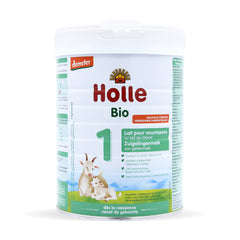
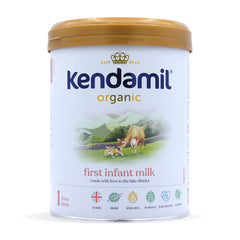
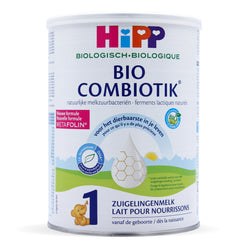
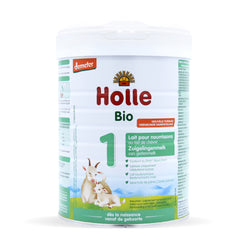
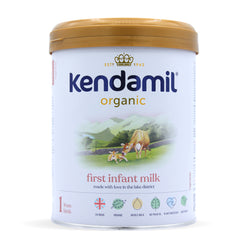






Annmarie -
I’d love to hear more about bottle options for preventing hiccups! 😊 I’ve tried a few, but some still seem to cause air buildup. Any recommendations?
Brittnie -
My baby used to get hiccups all the time after feeds, and burping more often really helped! 😊 Glad to know it’s usually nothing to worry about.
Brittanie -
Hiccups have been a real struggle for my baby, but I’ve found that feeding her slowly with HiPP Dutch formula has actually helped reduce the frequency. The formula seems gentler on her tummy, and when I make sure to burp her in between, it really cuts down on the hiccups. I also started keeping her upright for about 20 minutes after a feed, and that’s made a noticeable difference. It’s been a game-changer for us, and I’m hoping it helps other parents too!